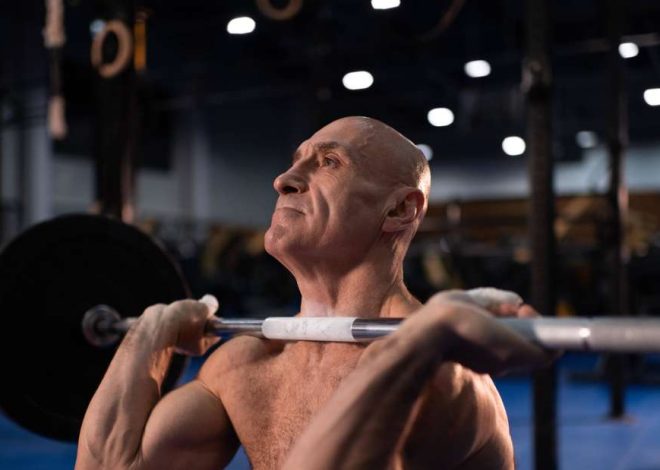
6 vegetarian fitness recipes | MEN’S HEALTH
Muscle growth only works with the right diet. And it has to be one thing above all: high in protein. Meat or fish contain plenty of it, but there are also plenty of alternative protein sources in vegetarian cuisine that provide you with all the amino acids you need to build muscle. It is definitely nonsense that a meat-free diet does not provide all the nutrients, is boring, unbalanced or that a vegetarian dish is not a complete meal. And: Many veggie recipes can be prepared quickly without a meat side dish and are therefore perfect to take with you.
At the same time, many vegetarian fitness recipes impress with complex carbohydrates that provide your body with energy slowly and evenly. This not only improves your performance during training, but also supports muscle building. Because without carbs as fuel, it’s difficult to train.
High protein, complex carbs and easy to prepare: Our recipes optimally support your muscle building. The eCookbook is available as a PDF here:
Cookbook
20 fitness recipes for vegetarians

-
Cookbook
20 quick and easy veggie recipes
Omelettes, curries, low-carb dishes & Co.
including nutritional values
available on all devices
Log in here.
After successful payment you will receive an email with a download link. If you have any questions, send a message to [email protected].
Vegetable proteins make muscles grow
Meat and fish are taboo in vegetarian cuisine, of course. Unlike a purely plant-based, i.e. vegan, diet, eggs, yoghurt and low-fat quark as well as cheese are permitted. This gives you a whole host of meat-free protein sources that you can use to prepare vegetarian muscle food.
Legumes such as chickpeas, kidney beans or lentils also have a high protein content. At the same time, they are rich in good, complex carbohydrates and therefore offer you twice as much power.
By the way, oat flakes also provide good carbohydrates in combination with protein. Topped with protein-rich nuts, seeds or seeds, you can easily prepare a protein porridge for your fitness breakfast. Click here for the recipe.
Tofu also increases the protein content on your plate enormously and is very versatile. The same applies to other meat substitute products, such as soy and pea shreds or veggie mince, jackfruit & Co.
Protein shakes are also suitable for vegetarians
Protein powder provides even more high-quality protein. This is usually vegetarian anyway because it is based on milk protein. If you want to limit your milk consumption, you can also sip a purely plant-based protein shake. According to studies, they are now so good that you will hardly taste or feel any difference to classic whey. So you don’t have to worry about consuming a lower quality protein.
Instead of just using rice, hemp or peas as a protein source in the shake, we recommend a multi-component powder, such as the bestseller from Alpha Foods. This is a mixture of different vegetable protein sources. This ensures that you absorb many different, essential amino acids. Multi-component protein also has the highest biological value due to the combination effect.
Tip: If you are looking for a soy-free product, Wyldsson protein powder is a good choice.
Vegetarian fitness recipes with lots of protein and complex carbohydrates
Thanks to the variety of different plant-based protein sources, muscle-building recipes without meat are very varied – even for those who don’t like cooking. Would you like an example? An omelet is a real protein bomb. And you can easily combine eggs with other foods, such as (sweet) potatoes, rice or quinoa. Add a dip made from low-fat quark or cottage cheese and you have the perfect fitness recipe for veggies.
Would you like even more inspiration? Then here are our most delicious vegetarian fitness recipes:
Recipe
At this point we show further content that complements the article. Click on the button to go to our mobile website.
Recipe
At this point we show further content that complements the article. Click on the button to go to our mobile website.
Recipe
At this point we show further content that complements the article. Click on the button to go to our mobile website.
Recipe
At this point we show further content that complements the article. Click on the button to go to our mobile website.
Recipe
At this point we show further content that complements the article. Click on the button to go to our mobile website.
Recipe
At this point we show further content that complements the article. Click on the button to go to our mobile website.
To build muscle, you need to consume enough protein. Fish and meat contain a lot of protein, but it’s also easy to do without it: eggs, tofu, legumes and dairy products in particular are very good sources of protein and can be easily combined with healthy carbohydrates. Most of the time, such dishes are even quicker than the meat-rich version. Want even more recipes? Then take a look here:
Cookbook
20 fitness recipes for vegetarians

-
Cookbook
20 quick and easy veggie recipes
Omelettes, curries, low-carb dishes & Co.
including nutritional values
available on all devices
Log in here.
After successful payment you will receive an email with a download link. If you have any questions, send a message to [email protected].
© Pixel Shot / Shutterstock.com
Vegan protein powder in the test
Is vegan protein powder as good as whey for building muscle?
© Klaus Vedfelt / Getty Images
Become vegan
How to take part in Veganuary and eat vegan for 1 month
© Estrada Anton / Shutterstock.com
Vegan diet
8 vegan myths that are complete nonsense
Sources mentioned:
Nicolas Babault et al. (2015): Pea proteins oral supplementation promotes muscle thickness gains during resistance training: a double-blind, randomized, placebo-controlled clinical trial vs. whey protein. Journal of the International Society of Sports Nutrition, https://doi.org/10.1186/s12970-014-0064-5, last accessed on April 19, 2024
This article may contain links to providers from whom MEN’S HEALTH may receive a commission (so-called “affiliate links”). Further information here.

Ethel Purdy – Medical Blogger & Pharmacist
Bridging the world of wellness and science, Ethel Purdy is a professional voice in healthcare with a passion for sharing knowledge. At 36, she stands at the confluence of medical expertise and the written word, holding a pharmacy degree acquired under the rigorous education systems of Germany and Estonia.
Her pursuit of medicine was fueled by a desire to understand the intricacies of human health and to contribute to the community’s understanding of it. Transitioning seamlessly into the realm of blogging, Ethel has found a platform to demystify complex medical concepts for the everyday reader.
Ethel’s commitment to the world of medicine extends beyond her professional life into a personal commitment to health and wellness. Her hobbies reflect this dedication, often involving research on the latest medical advances, participating in wellness communities, and exploring the vast and varied dimensions of health.
Join Ethel as she distills her pharmaceutical knowledge into accessible wisdom, fostering an environment where science meets lifestyle and everyone is invited to learn. Whether you’re looking for insights into the latest health trends or trustworthy medical advice, Ethel’s blog is your gateway to the nexus of healthcare and daily living.



